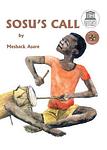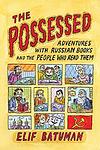The Greatest Turkish, Ghanaian "Fiction" Books Since 1990
Click to learn how this list is calculated.
This list represents a comprehensive and trusted collection of the greatest books. Developed through a specialized algorithm, it brings together 300 'best of' book lists to form a definitive guide to the world's most acclaimed books. For those interested in how these books are chosen, additional details can be found on the rankings page.
Genres
Countries
Date Range
Reading Statistics
Click the button below to see how many of these books you've read!
Download
If you're interested in downloading this list as a CSV file for use in a spreadsheet application, you can easily do so by clicking the button below. Please note that to ensure a manageable file size and faster download, the CSV will include details for only the first 500 books.
Download-
1. My Name is Red by Orhan Pamuk
Set in the late 16th century Ottoman Empire, this novel explores the conflict between East and West, tradition and innovation, through the lens of miniaturist painters. When a renowned artist is murdered, his colleagues must solve the mystery while grappling with the changes in their art brought about by the western Renaissance. This complex narrative intertwines love, art, religion, and power, offering a deep exploration of the struggles between old and new.
-
2. Snow by Orhan Pamuk
Set in the small city of Kars in northeastern Turkey, the novel follows a Turkish poet who has spent several years in political exile in Germany. He returns to Turkey during a time of political unrest, with tensions high between religious and secular factions. As he becomes embroiled in the turmoil, he also becomes involved in a romantic relationship with a beautiful woman. The city is cut off from the rest of the world by a relentless snowstorm, leading to a series of tragic events. The novel is a contemplation on love, faith, and the tensions between tradition and modernity.
-
3. Homegoing by Yaa Gyasi
This epic novel traces the lineage of two half-sisters from 18th century Ghana to present day America. One sister is sold into slavery and shipped to America, while the other is married off to a British slaver and remains in Africa. The book follows their descendants through the generations, exploring the lasting impact of slavery and colonialism on Black lives. The narrative showcases the struggles, resilience, and triumphs of each generation, providing a deep and personal view into the historical events and societal changes that shaped their lives.
-
4. Life is a Carawanserai Has Two Doors I Went in One I Came out the Other by Emine Sevgi Özdamar
This novel follows the life of a young Turkish girl growing up in the 1950s and 60s, exploring her experiences in a rapidly changing society. The protagonist navigates the complexities of her family life, her struggle with her identity and her eventual emigration to Germany. The book explores themes of female empowerment, cultural clashes, and the immigrant experience, all told through a unique narrative style that blends reality with dreams and folktales.
-
5. Changes by Ama Ata Aidoo
"Changes" is a novel that explores the complexities of modern African life, particularly for women, through the story of its protagonist, a young woman named Esi. After enduring an unhappy marriage, Esi decides to divorce her husband in pursuit of independence and personal fulfillment. She then enters into a polygamous marriage with a man named Ali, believing it will allow her more freedom and respect. However, as the narrative unfolds, Esi confronts the realities and challenges of her choices, including societal expectations, the intricacies of love, and the struggle for a sense of identity amidst the changing cultural landscape of contemporary Ghana. The novel delves into themes of feminism, tradition, and the evolving roles of women in society.
-
6. The Black Book by Orhan Pamuk
The novel focuses on a man searching for his wife in Istanbul, who disappeared without a trace. In his search, he discovers a secret, surreal world in the city and starts to understand his wife's involvement in political activism. The narrative is interwoven with stories from a column written by his wife's half-brother, which the protagonist believes may hold clues to her disappearance. The book is a complex exploration of identity, storytelling, and the role of literature in society.
-
7. Cutting The Rose by Efua Doorkenoo
"Cutting The Rose" is a gripping and thought-provoking novel that delves into the complexities of identity, culture, and the power dynamics within a Ghanaian community. Set in the 1960s, the story follows the life of a young woman named Akosua, who must navigate the expectations placed upon her as a woman in a patriarchal society while also grappling with her own desires and ambitions. Through vivid storytelling and rich character development, the author explores themes of tradition, love, and the pursuit of self-discovery in a changing world.
-
8. Sosu's Call by Meshack Asare
"Sosu's Call" tells the story of a young boy named Sosu, who is born without the ability to walk. Despite this physical limitation, Sosu possesses a remarkable talent for carving beautiful objects out of wood. When his village is hit by a devastating storm, Sosu's bravery and resourcefulness are put to the test as he must find a way to save his community from the aftermath of the disaster. Through determination and the power of his artistic gift, Sosu becomes a symbol of hope and inspiration for his village.
-
9. The Forty Rules of Love by Elif Shafak
This novel intertwines two parallel narratives, one set in the 13th century and one in the modern day. The contemporary story follows a discontented American housewife who, while working as a reader for a literary agency, comes across a novel about the 13th-century poet Rumi and his spiritual mentor, Shams of Tabriz. As she delves into their story, she uncovers Shams' forty rules of love and begins to question her own life and relationships. The historical narrative, on the other hand, explores the transformative friendship between Rumi and Shams, and how their bond revolutionized Rumi's poetry and outlook on life.
-
10. The Museum Of Innocence by Orhan Pamuk
This novel delves into the obsessive love of Kemal, a wealthy Istanbulite, for Füsun, a distant relative and a shopgirl, which begins in 1975 and spans over 30 years. After a brief affair, Füsun marries another man, but Kemal's love remains unyielding. He starts collecting objects that remind him of his love for her, eventually creating a museum dedicated to their relationship. Set against the backdrop of Istanbul's changing society, the story explores themes of love, longing, class, and the power of memory, as Kemal's life becomes a testament to his unattainable desire, encapsulated within the walls of his museum.
-
11. Wife Of The Gods by Kwei Quartey
In a small village in Ghana, a young woman's body is found in a sacred forest, sparking an investigation led by Detective Inspector Darko Dawson. As he delves into the case, Darko uncovers a web of secrets and corruption that reaches high into the country's political elite. Along the way, he must confront his own personal demons and navigate the complexities of his culture and beliefs. With vivid descriptions of Ghanaian life and a gripping plot, "Wife Of The Gods" is a compelling crime novel that explores themes of tradition, power, and the clash between modernity and ancient customs.
-
12. The Possessed by Elif Batuman
"The Possessed" is a compelling narrative that combines memoir, criticism, and travel writing to explore the author's deep fascination with Russian literature. Through her experiences as a graduate student at Stanford, her travels to Turkey, Russia, and Uzbekistan, and her encounters with other scholars, the author delves into the works of great Russian authors such as Tolstoy, Dostoevsky, and Chekhov, while also reflecting on the nature of literature, identity, and the human condition.
-
13. The Bastard of Istanbul by Elif Shafak
"The Bastard of Istanbul" is a novel that tells the story of two families, one Turkish and one Armenian American. It explores the deep, intricate history between the two nations through the eyes of the characters, while also tackling themes of identity, memory, and the past. The narrative unfolds through the perspectives of the women in both families, who carry the burden of their ancestors' secrets, and a young man haunted by the ghost of a long-dead Armenian. The novel delves into the complexities of love, family, and the lasting effects of the Armenian genocide on its descendants.
Reading Statistics
Click the button below to see how many of these books you've read!
Download
If you're interested in downloading this list as a CSV file for use in a spreadsheet application, you can easily do so by clicking the button below. Please note that to ensure a manageable file size and faster download, the CSV will include details for only the first 500 books.
Download









